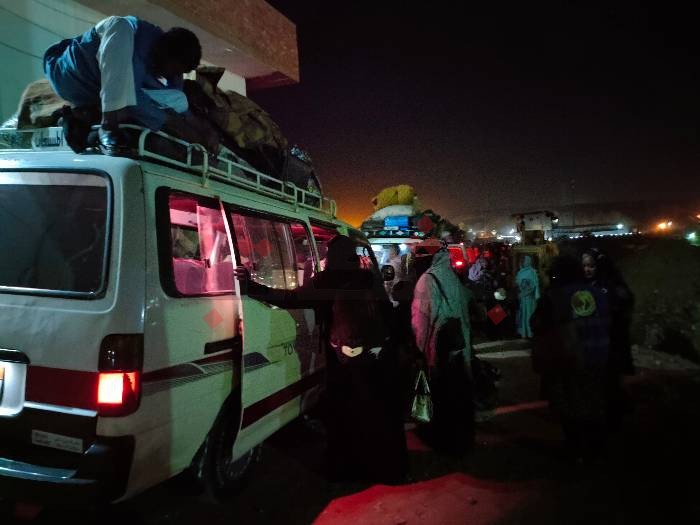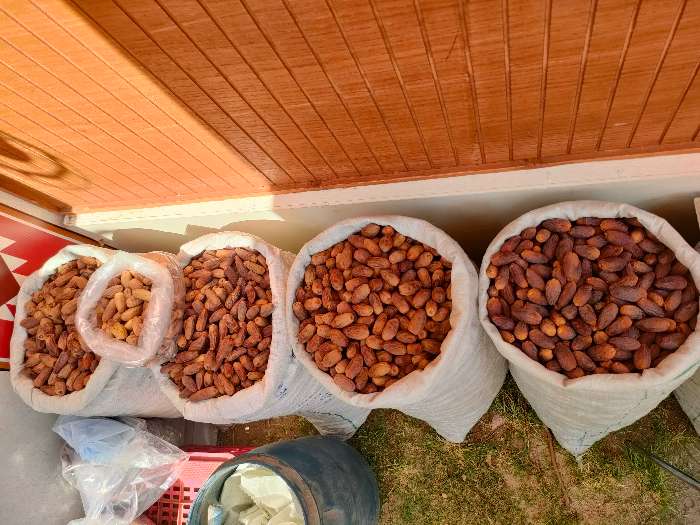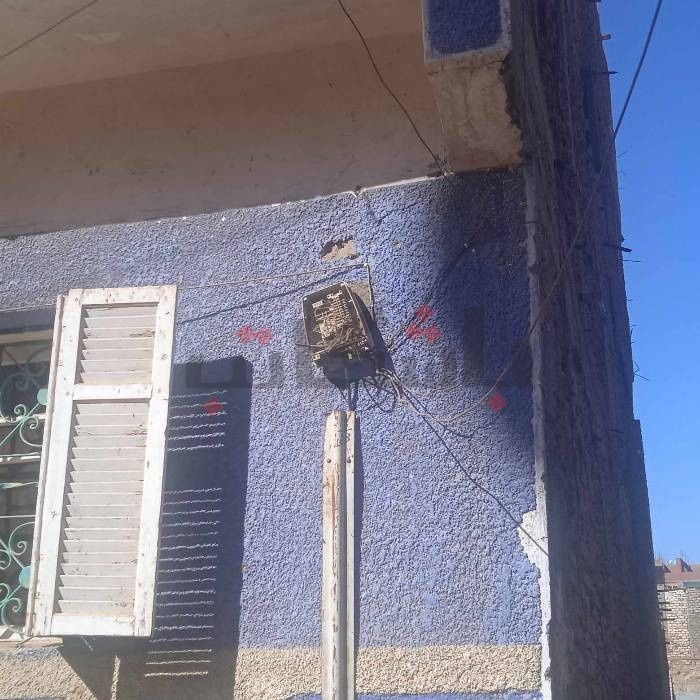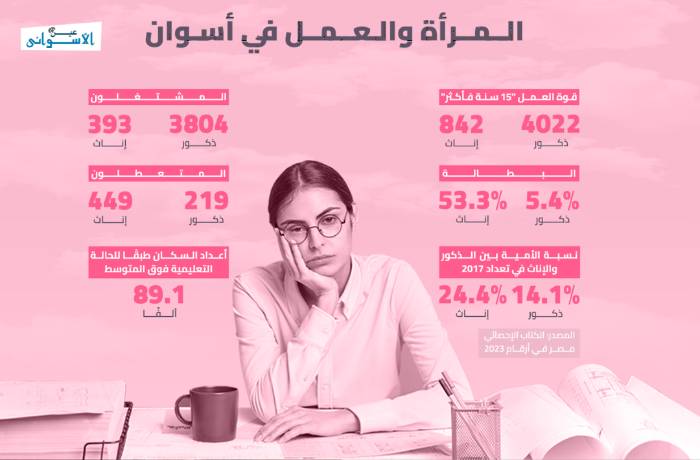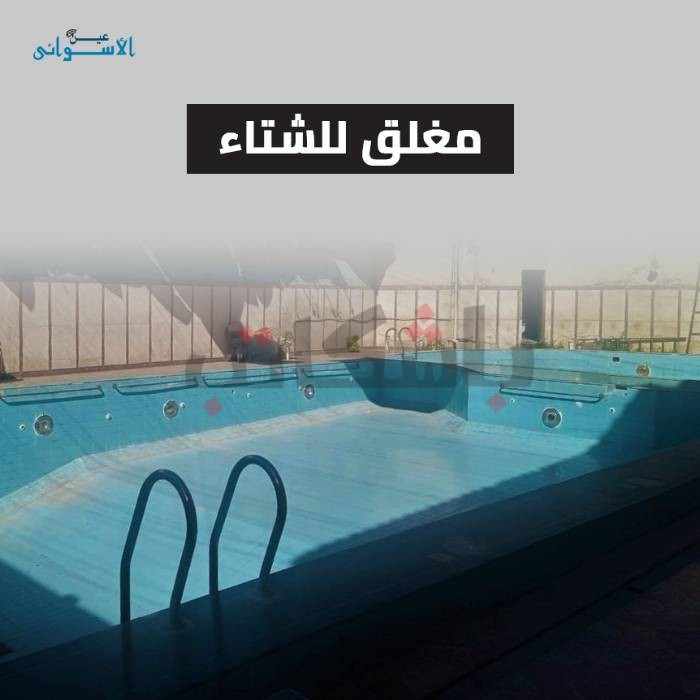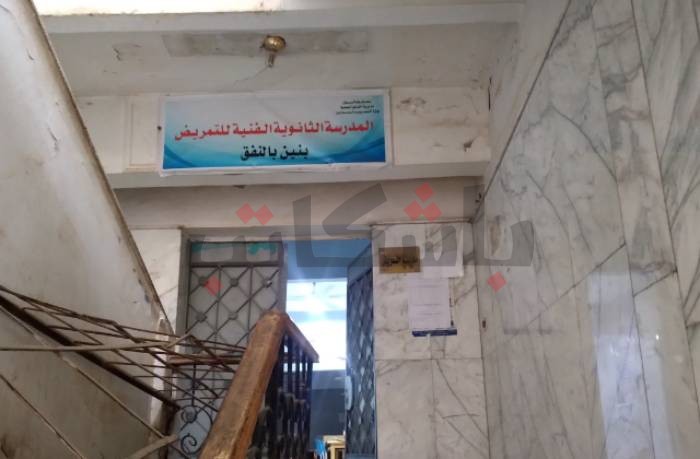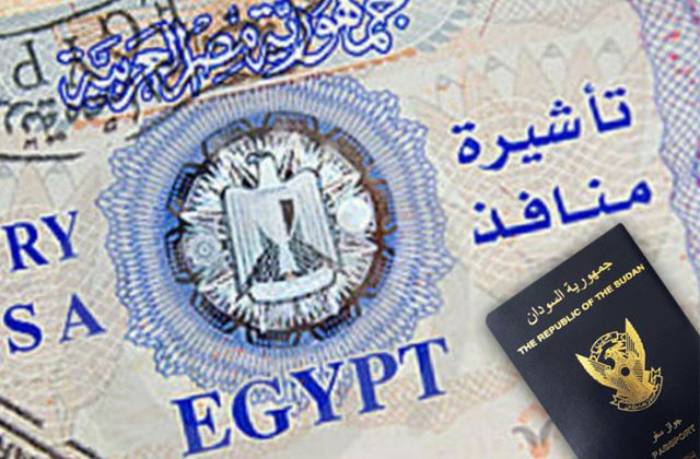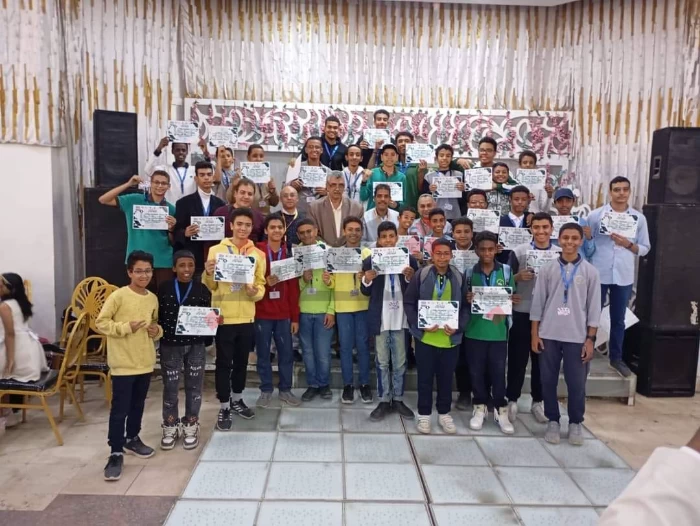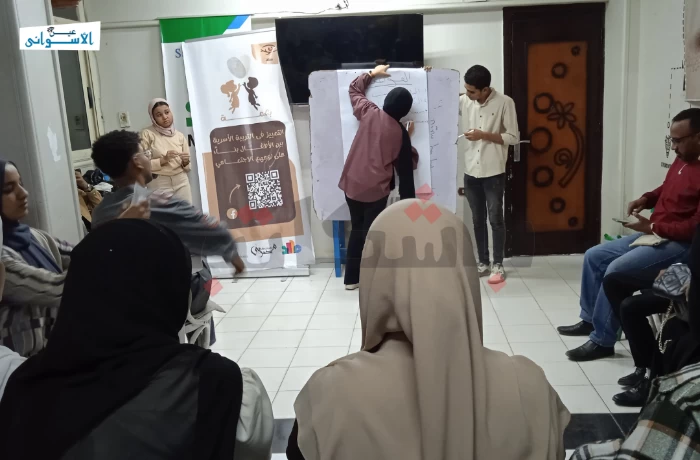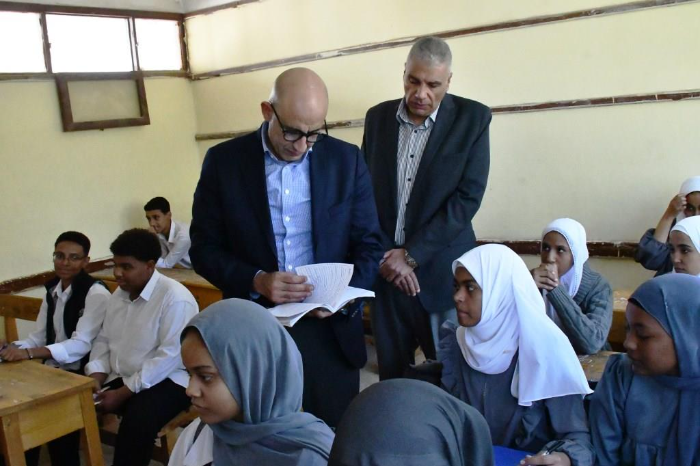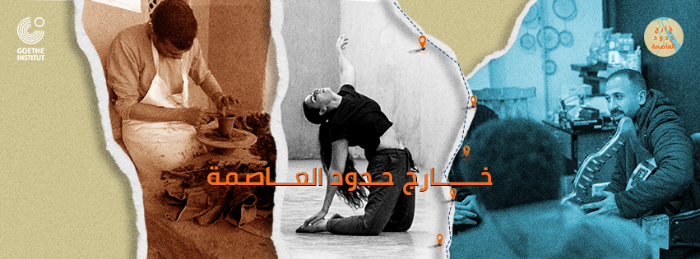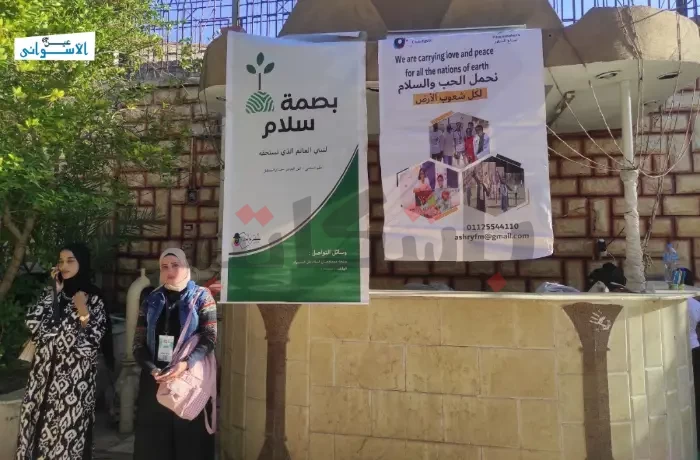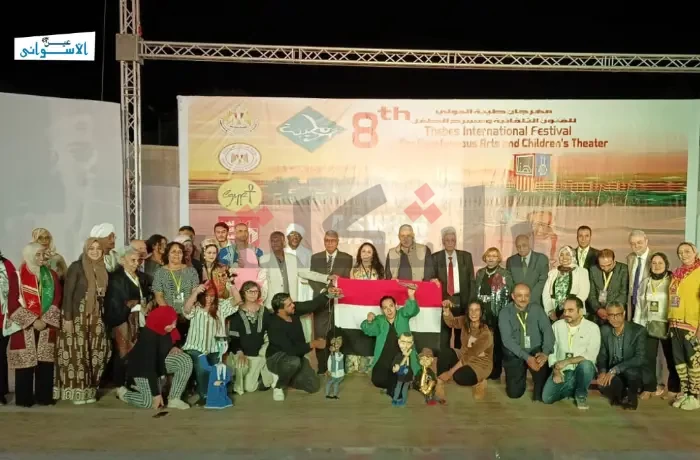Zahraa, using a pseudonym, spent four days with her three children at the Arqin border crossing between Egypt and Sudan, with the hope of crossing and avoiding the perils of the war she had witnessed in Omdurman, Sudan. This occurred after the outbreak of clashes between the Sudanese army and the Rapid Support Forces in mid-April of the past year.
"The conditions were difficult at the Arqin land border crossing; we sat on the ground amidst the buses' congestion." This is how Zahraa describes her ordeal, holding the hands of her three children, the eldest being six years old and the youngest is a baby girl.
Zahraa and her husband made a joint decision to travel to Cairo seeking safety and a fresh start, especially given that her brother had been living in Cairo for years due to work. Unfortunately, the activation of the entry visa at that moment barred her husband from entering Egypt.
After the crisis in April last year, Egyptian authorities permitted the entry of children, women, and elderly men into Egypt without requiring a visa, except for young people aged 16 to 49 who had to obtain a prior entry visa from the Egyptian consulate in Port Sudan and Wadi Halfa in Sudan.
Upon reaching the Arqin crossing, Zahraa and her husband, along with their children, were getting ready to enter Egypt. However, her husband was not allowed to enter due to lacking the necessary entry visa for individuals under 50 years old. Consequently, he decided to go back to Halfa to obtain the entry visa from the Egyptian consulate there.
Zahraa was compelled to continue the journey alone and temporarily cross into Aswan, as decided by her husband, until he obtained the visa and they could then travel together to Cairo.
Leaving Sudan was not easy for the family, but they endured the hardships and risks of the war that threatened their lives, forcing them to abandon their homes, says Zahraa, recalling the scenes of war and the sounds of shells: "The conditions in Omdurman were perilous. I made the decision to depart searching foe a secure haven for my children. I was away at my neighbors' place when I left my children at home. Upon my return, I found a shell had landed on the neighbors' house, shelling the children's rooms and bringing down the ceiling fan."
Zahraa hurried towards her home and found her children safe, but her house was affected by the shelling. Sadly, six neighbors in the adjacent house lost their lives due to the shell.. Zahraa picked up her phone and called her husband, delivering the message with a determined tone: "We must leave immediately to escape death."
Zahraa is one of thousands of Sudanese who fled their country following the conflict. According to the United Nations Children's Fund (UNICEF), since April 15th of last year, at least 450,000 children have been forced to flee their homes, including 368,000 internally displaced and 82,000 who sought refuge in neighboring countries.
Zahraa and her husband sold their "tuk-tuk," which they owned, to cover travel expenses, stating: "Due to the crisis, we were only able to sell it for 800,000 Sudanese pounds, equivalent to 41,000 Egyptian pounds."
Zahraa and her husband encountered a rise in the prices of travel tickets. Initially, they believed that each ticket would be priced at 30,000 Sudanese pounds, which equates to 1,500 Egyptian pounds—the usual average cost for their journey from Sudan to Egypt. However, the total cost for two tickets turned out to be 350,000 Sudanese pounds, equivalent to 18,000 Egyptian pounds.
On the way to the Arqin crossing, Zahraa and her husband sat on two seats in the bus, placing their children between them. However, upon arrival, they were surprised by the husband's denial of entry. As a result, she continued the journey alone to Karkar bus station, stating: "I didn't know where to go; it's my first time traveling to Egypt. But at Karkar bus station, I found available services to assist newcomers. I received a free phone SIM card to communicate with my family in Sudan, and a volunteer girl helped me search for affordable daily rental accommodation in Aswan until my husband gets the visa and arrives in Egypt."
"We used to live in peace, and we were not accustomed to such chaos. The beating continued, along with the falling shells. I became unable to bear loud noises, and I quickly forget even the simplest information. We need psychological therapy to forget the sound of war," these are the most prominent phrases spoken by Zahraa, recounting harsh scenes in the journey of escaping from Omdurman to the Arqin crossing.
She says: "We found corpses lying in the street, and there was no one to bury them. At least my husband covered one of the bodies with a cardboard box. The stench of death permeated the streets, and we walked amidst remains and fingers,".
With sorrow, Zahraa continued: "I did not want to leave my country, but the situation is dire, and we have no place there. The remaining money we had after selling the tuk-tuk was divided between my husband and me. Now, I live in a daily rental apartment, and the volunteer I met at Karkar bus station contacts me every day and helps me if I need anything."
Zahraa and her family lack any future plans; she is solely anticipating her husband's return. Everyday questions swirl in her mind.. "Should I go to Cairo or wait for my husband and go together? "While Aswan offers a more favorable situation with lower living costs, the arrival of my husband is uncertain. My brother suggested that Cairo has a better situation, providing my children with opportunities for quality education. In Sudan, schools operated for a month and remained closed for six months."
Zahraa arrived in Aswan on April 29th, and until mid-May, the last contact with her husband was that he could not obtain an entry visa to Egypt. However, some initiatives in Aswan provided her and her children with travel tickets to Cairo to join her brother while awaiting the resolution of her husband's situation.
Previously, Sudanese males aged 16 to 49 were required to obtain a prior entry visa to enter Egypt. However, a new decision, implemented in June of last year, mandated that individuals of all ages and genders must obtain prior entry visas to cross into Egypt through the Qastal and Arqin land crossings on the Sudanese border. This marked the end of the decision allowing entry without a prior visa for children, women, and the elderly, leading to congestion of Sudanese individuals in front of the Egyptian consulate for days to obtain entry visas.

Mustafa Alaa Eldin, a bus driver on the Qastal route, travels daily to transport Sudanese individuals from the Qastal border crossing to Karkar International Bus Station.
Mustafa describes the daily scene, saying: "At the beginning of the crisis, the congestion was considerable, but it has decreased now. The majority of the travelers are families. I operate my travels to transport around five to six families, totaling approximately 50 individuals. At Qastal crossing, I observe families crowded, awaiting their turn to cross. Some, even after obtaining the entry visa, hesitate to cross, preferring to wait until the rest of their family members secure their visas. Leaving a brother or a husband behind and continuing the journey alone poses a significant challenge for them."
Rabab Fadlallah resides in a room on the ground floor of a youth hostel that she rented upon her arrival in Aswan with her three children— "a daughter in high school and two sons in elementary school." This wasn't her first visit to Aswan; she had previously come for her child's medical treatment. Within a week of arriving in Aswan, her children started exploring and enjoying the city's neighborhoods.
Even though Rabab is familiar with Aswan from her past visits, she is determined not to impose any burden on others, especially considering the economic challenges everyone is enduring. Consequently, she has chosen to look for housing that fits her and her three children's needs, particularly because her husband cannot join them due to his commitment to work in the police force in Sudan.
In Khartoum, in the East Nile area, Rabab and her family witnessed scenes of destruction inflicted upon the city by the continuous sound of aircraft in the sky and the hail of bullets. She still remembers these sounds every day.
She says: "Homes around us were being bombed, and each day the situation worsened. We slept only one hour and would repeatedly wake up in fear. Our problem was leaving Khartoum due to the possibility of facing any threat. However, we were contemplating a future outlook—would the situation persist or deteriorate further?"
And Rabab describes the situation of the city she decided to leave, saying: "We suffered from shortages of food commodities, ongoing looting and theft in the city. Water supply was disrupted for twenty days, and and electricity was intermittent in some areas while being functional in others. We decided to leave without considering any plans or preparations. The paramount concern was the safety of my children. I requested the rest of my family and siblings to accompany me to Egypt, but some lack passports, and government offices are non-operational. Everyone is clinging to one another, debating whether to depart together or endure the threats while staying."
"For days, Rabab kept moving between travel agencies, seeking to buy travel tickets at a reasonable price, especially with the emergence of crisis profiteers and the black market." "I spent my days moving between travel agencies to get tickets at the lowest price. During one of my visits to a travel reservation office, the employee informed me that a bus would depart for Qastal crossing in a few hours. I bought a ticket for about 18,000 Egyptian pounds, but before the war, the ticket price was equivalent to 1,200 Egyptian pounds."
She continues: "I called my children and told them to pack their bags until I return home to pick them up. Each of us packed spare clothes and passports. During our departure, the beating continued, and smoke filled the sky. Leaving the city posed a greater risk than being exposed to any shell or even theft inside the bus. While traveling, we witnessed the killing of two individuals by thieves to rob their money. However, after leaving the city, the situation became safer."
According to the Federal Ministry of Health in Sudan, the clashes between the Sudanese Armed Forces and the Rapid Support Forces continued for a consecutive period of 30 days, especially in Khartoum and its surroundings, until May 14. This has resulted in the death of at least 676 people and the injury of 5,576 others since the conflict began.
At Qastal crossing, one of the land border crossings designated for Sudanese nationals after the outbreak of the crisis, and which is considered the preferred option for Sudanese due to the presence of the Egyptian consulate issuing entry visas for Sudanese men, Rabab was luckier than others. The crossing journey took only a few hours, and the procedures were swift until reaching Karkar International Station, the first destination for arriving travelers.
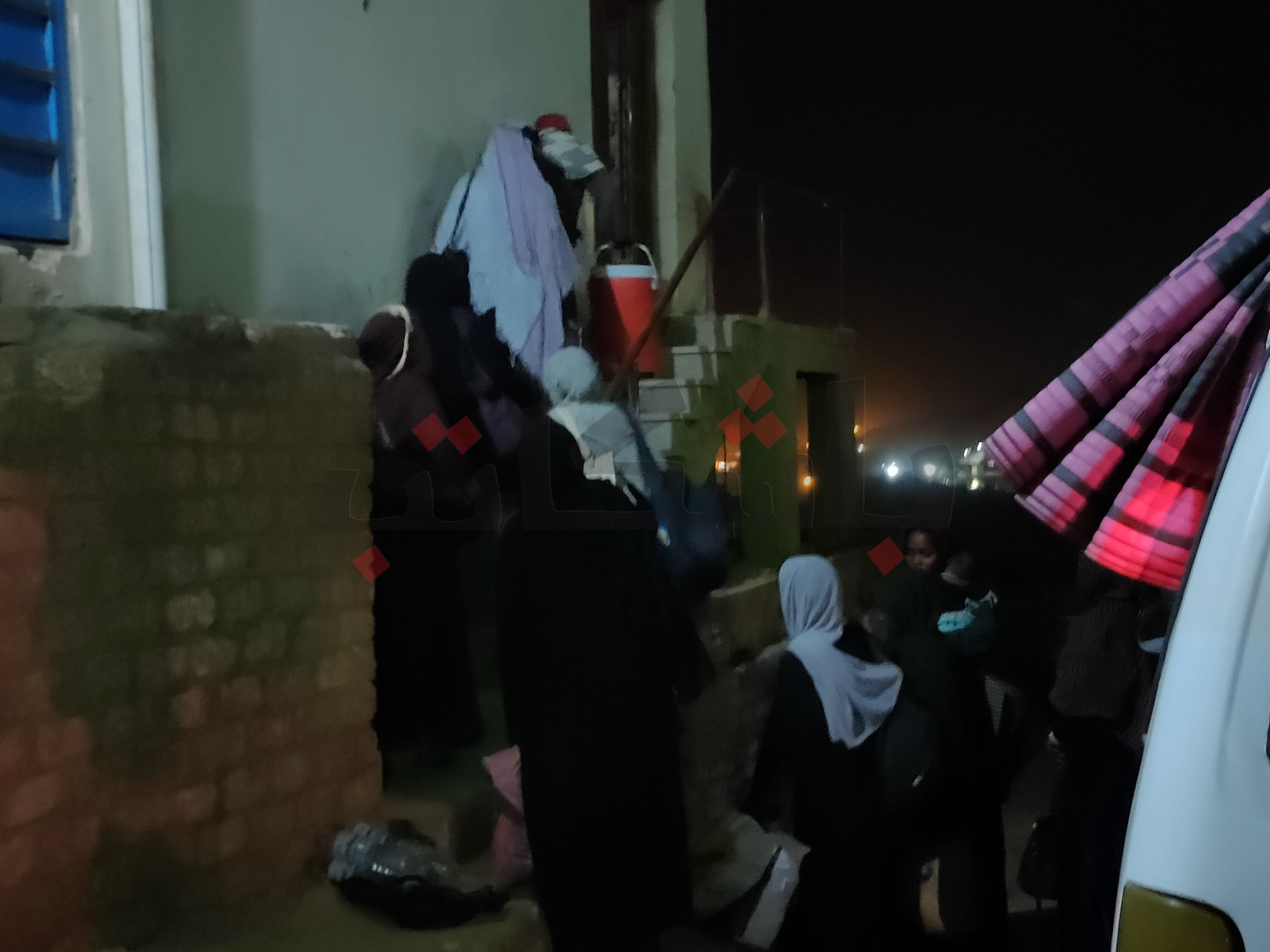
On May 9th, Rabab arrived at Qastal crossing.
She continues: "Families gathered, anticipating the arrival of the remaining family members to obtain entry visas. Subsequently, they proceeded to Karkar station, and the transportation cost from the station to Aswan per individual was 50 Egyptian pounds. Using a microbus, Sudanese families then transitioned to daily accommodation recommended by a Sudanese family residing in Aswan. The lodging expenses were more affordable compared to regular rental prices."
So, Rabab decided to stay in this accommodation, she adds: "I'm uncertain whether our stay is permanent or temporary, particularly because my husband, who works in the police, can only join us once the crisis is over. I'm living each day as it comes, depending on fast foods from restaurants since there's no kitchen in the accommodation. Moreover, I appreciate initiatives that offer free meals from time to time."
Rabab wonders: "I'm uncertain about the future and how I'll sustain myself. Should I look for a job? I have no prior work experience, so if I decide to work, what kind of job could I do? I visited a Sudanese school in Aswan to inquire about the possibility of my children continuing their education. If the chance to return to Sudan arises, we will go back before they miss an entire academic year. When we left Sudan, my children were in the midst of exams, which were disrupted due to the crisis."
